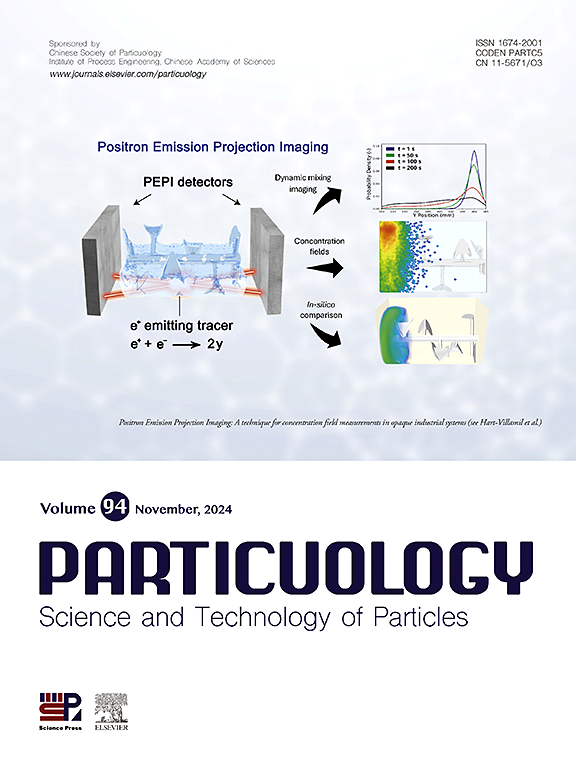Hydrodynamic parameters and applications of circulating fluidized beds in wastewater treatment: A review
IF 4.1
2区 材料科学
Q2 ENGINEERING, CHEMICAL
引用次数: 0
Abstract
This review investigates the gas-liquid-solid circulating fluidized bed (GLS-CFB) technology for wastewater treatment by exploring its operational parameters and diverse applications for wastewater cleaning. The versatile CFB reactor system operates in both two-phase and three-phase modes, offering advantages for various industrial applications through distinct operational configurations. Incorporating the liquid phase into the standard gas-solid system of the three-phase GLS-CFB enables the study of reactions involving liquid media, gas-liquid interactions, and biochemical processes. These advanced features improve mass transfer and reaction control. GLS- CFB systems promote effective pollutant removal by enhancing the interaction between wastewater and treatment agents, which supports better microbial metabolism and pollutant transfer. The GLS-CFB system is efficient and compact, allowing for treating diverse wastewater types regardless of their size distribution. The novelty of this review lies in exploring the hydrodynamic properties of GLS-CFB and demonstrating its potential for scalable, efficient wastewater treatment across various industrial sectors.
循环流化床水动力参数及其在废水处理中的应用综述
本文对气液固循环流化床(GLS-CFB)技术进行了研究,探讨了其运行参数及其在废水净化中的多种应用。多功能CFB反应器系统可在两相和三相模式下运行,通过不同的操作配置为各种工业应用提供优势。将液相纳入三相GLS-CFB的标准气固系统,可以研究涉及液体介质,气液相互作用和生化过程的反应。这些先进的功能改善了传质和反应控制。GLS- CFB系统通过加强废水和处理剂之间的相互作用来促进有效的污染物去除,从而支持更好的微生物代谢和污染物转移。GLS-CFB系统是高效和紧凑的,允许处理不同类型的废水,无论其大小分布。本综述的新颖之处在于探索GLS-CFB的水动力特性,并展示其在各种工业部门中可扩展、高效的废水处理的潜力。
本文章由计算机程序翻译,如有差异,请以英文原文为准。
求助全文
约1分钟内获得全文
求助全文
来源期刊

Particuology
工程技术-材料科学:综合
CiteScore
6.70
自引率
2.90%
发文量
1730
审稿时长
32 days
期刊介绍:
The word ‘particuology’ was coined to parallel the discipline for the science and technology of particles.
Particuology is an interdisciplinary journal that publishes frontier research articles and critical reviews on the discovery, formulation and engineering of particulate materials, processes and systems. It especially welcomes contributions utilising advanced theoretical, modelling and measurement methods to enable the discovery and creation of new particulate materials, and the manufacturing of functional particulate-based products, such as sensors.
Papers are handled by Thematic Editors who oversee contributions from specific subject fields. These fields are classified into: Particle Synthesis and Modification; Particle Characterization and Measurement; Granular Systems and Bulk Solids Technology; Fluidization and Particle-Fluid Systems; Aerosols; and Applications of Particle Technology.
Key topics concerning the creation and processing of particulates include:
-Modelling and simulation of particle formation, collective behaviour of particles and systems for particle production over a broad spectrum of length scales
-Mining of experimental data for particle synthesis and surface properties to facilitate the creation of new materials and processes
-Particle design and preparation including controlled response and sensing functionalities in formation, delivery systems and biological systems, etc.
-Experimental and computational methods for visualization and analysis of particulate system.
These topics are broadly relevant to the production of materials, pharmaceuticals and food, and to the conversion of energy resources to fuels and protection of the environment.
 求助内容:
求助内容: 应助结果提醒方式:
应助结果提醒方式:


